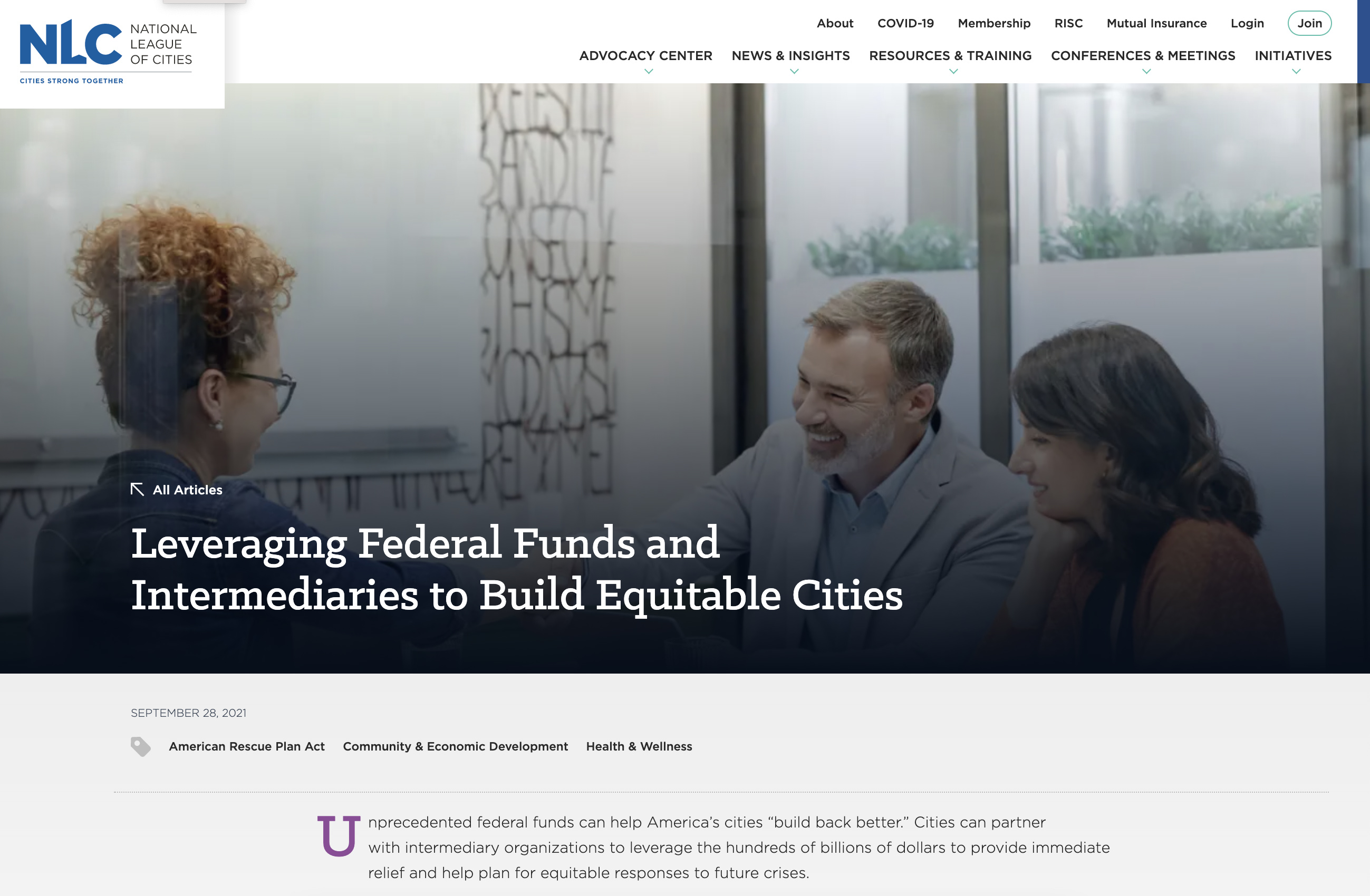
This blog details how cities can partner with intermediary organizations to leverage the hundreds of billions of dollars to provide immediate relief and help plan for equitable responses to future crises.
Mayors and city executives can engage intermediary organizations to maximize and sustain the sizeable investments coming their way. While there is no single model for this approach, city leaders can partner with community foundations, public health institutes, community coalitions and collaboratives, and community development financial institutions to align, plan, and carry out the work.
The Georgia Health Policy Center, in partnership with the School of Public Health at George Washington University and with support from the Robert Wood Johnson Foundation, is identifying, synthesizing, and disseminating cross-sector policy and implementation opportunities that facilitate recovery from the triple crisis of the COVID-19 pandemic, impacts of the 2020 economic downturn, and the ongoing impact of structural racism. The work – Aligning in Crisis — builds on Aligning Systems for Health: Health Care + Public Health + Social Services.

 Back to Resources
Back to Resources